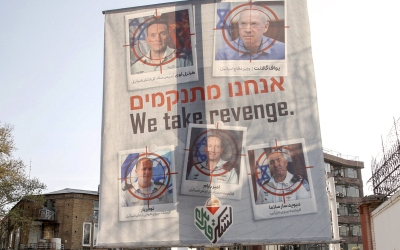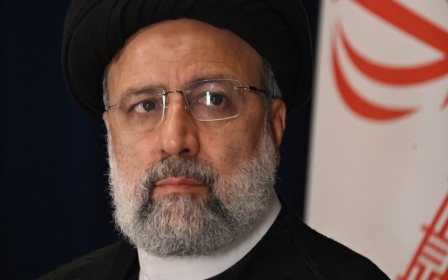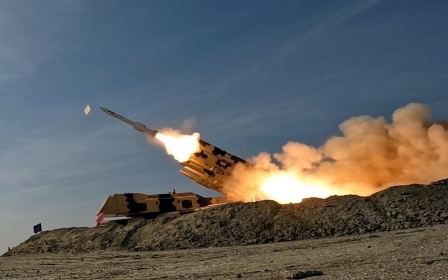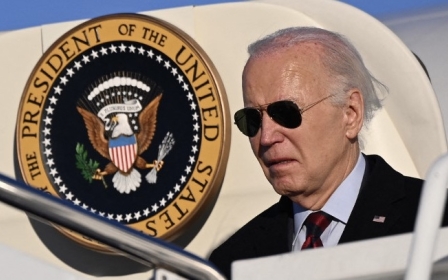Will Israel's attack on Iranian consulate lead to all-out war?
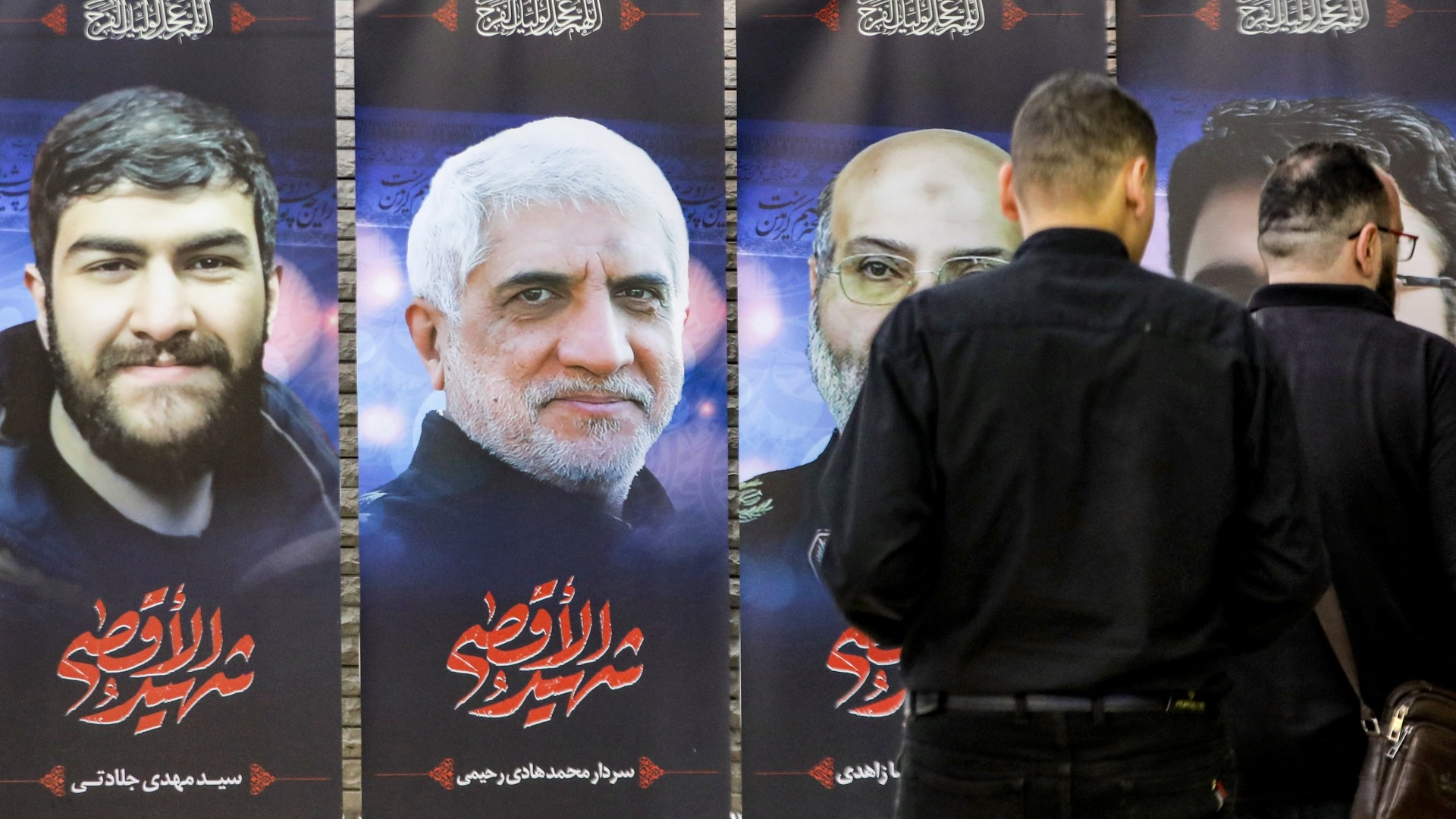
The deadly strike this week on Iran's consulate building in the Syrian capital Damascus, which has been attributed to Israel, killed a dozen people, including three Iranian commanders. Tehran swiftly vowed retaliation and called for an urgent meeting of the UN Security Council.
In a post on X (formerly Twitter), Iranian Foreign Minister Hossein Amir-Abdollahian said his government had conveyed a message to Washington that, as a supporter of the "Zionist regime", it must also be held responsible.
It is clear that Iran wants revenge, with Supreme Leader Ayatollah Ali Khamenei saying: "The nefarious regime will be punished by our brave men. We will make them regret this crime and other ones like it, by God's will."
President Ebrahim Raisi promised that "this unfair crime won't go unanswered", while Interior Minister Ahmad Vahidi wrote on X: "Zionists should wait for a reaction."
Iranians across the political spectrum are collectively calling for a response, with some urging retributive attacks on Israeli embassies in other countries.
New MEE newsletter: Jerusalem Dispatch
Sign up to get the latest insights and analysis on Israel-Palestine, alongside Turkey Unpacked and other MEE newsletters
Indeed, Israel’s attack on the Iranian consulate in Damascus appears to mark a new phase of the conflict between Iran and Israel, which is gradually moving beyond the war of shadows.
Since the start of the civil war in Syria and the presence of Iranian forces in the country, Israel has carried out many attacks, but they initially focused on facilities and convoys for the transfer of weapons to Iranian proxy forces. Gradually, the attacks began targeting senior military commanders.
Escalating aggression
The latest attack in Damascus appears to have been a deliberate, pre-planned assassination of top Iranian commanders. The highest-ranking was General Mohammad Reza Zahedi, a senior Revolutionary Guards commander who was responsible for coordinating operations in Lebanon and Syria.
Since the war on Gaza began on 7 October, the assassination of Iranian military forces has intensified, with at least 17 members of the Revolutionary Guards killed in suspected Israeli strikes on Syria in the ensuing months.
Follow Middle East Eye's live coverage of the Israel-Palestine war
In January, Iran accused Israel of killing five Revolutionary Guards, including General Sadegh Omidzadeh, who was responsible for intelligence for the Quds Force in Syria. A month earlier, General Sayyed Razi Mousavi, who coordinated the military alliance between Syria and Iran, was killed in an Israeli attack outside of Damascus.
But the consulate attack marked a significant escalation in aggression. Iran cannot remain indifferent to this attack, as this would cause it to lose credibility amid its rhetoric of harsh revenge against Israel. Still, there are many factors Tehran must consider.
Israel's attack on the Iranian consulate in Damascus has changed the shadow war between Tehran and Tel Aviv
Firstly, Iran does not want to engage in full-scale war with Israel, which would risk a direct war with the US. Secondly, such escalation would play into Israel’s hands, as Tel Aviv looks to expand and internationalise the Gaza war by confronting Tehran, thus reducing the world’s focus on its genocidal assault against Palestinians.
Thirdly, Iran is in a dire economic situation. War requires a strong economy, but Iran is facing 40 percent inflation, a weakened national currency and budgetary deficits. Getting into a war is easy, but getting out of it can take months or even years, putting significant economic pressure on national financial resources and citizens.
Finally, domestic public opinion would not support starting a war. After the 2022 “Woman, Life, Freedom” protests, the regime lost significant public support, becoming caught in a crisis of legitimacy.
'Cascade of responses'
Instead of all-out war, Iran is expected to respond indirectly to Israel through proxy confrontations. Rather than massive attacks, Tehran will likely retaliate with a “cascade of responses”, Sanam Vakil, director of the Middle East and North Africa programme at Chatham House, told CNN.
At the emergency UN Security Council meeting on Tuesday, the consulate strike was roundly condemned, with China and Russia noting that it violated international laws and the UN Charter. As Iran tries to build an international consensus around its possible response, the consulate attack has also been condemned across the Arab world.
In the coming weeks and months, it is possible that there could be another attack on US interests and forces in the region. Earlier this year, several American soldiers were killed near the Jordan-Syria border by an Iran-backed group over Washington’s support for Israel’s war on Gaza, prompting a wave of US attacks, followed by deescalation. Washington has said it had no involvement in Israel’s attack this week on the consulate in Damascus.
Iranian proxies throughout the region, such as the Houthis in the Red Sea, could also intensify their attacks. But proxy attacks will surely be different this time.
If attacks by Iraqi proxies were previously limited to targeting smaller US and Israeli installations with less destructive ammunition, it is possible that with Iran’s help, they will have an opportunity to strike more broadly at more sensitive areas, including Israeli diplomatic missions.
Indeed, Israel’s attack on the Iranian consulate in Damascus has changed the shadow war between Tehran and Tel Aviv. Iran will most likely not enter into a direct war with Israel for many reasons, but it will retaliate harshly in other ways - and it may be biding its time before unleashing that response.
The views expressed in this article belong to the author and do not necessarily reflect the editorial policy of Middle East Eye.
Middle East Eye delivers independent and unrivalled coverage and analysis of the Middle East, North Africa and beyond. To learn more about republishing this content and the associated fees, please fill out this form. More about MEE can be found here.



